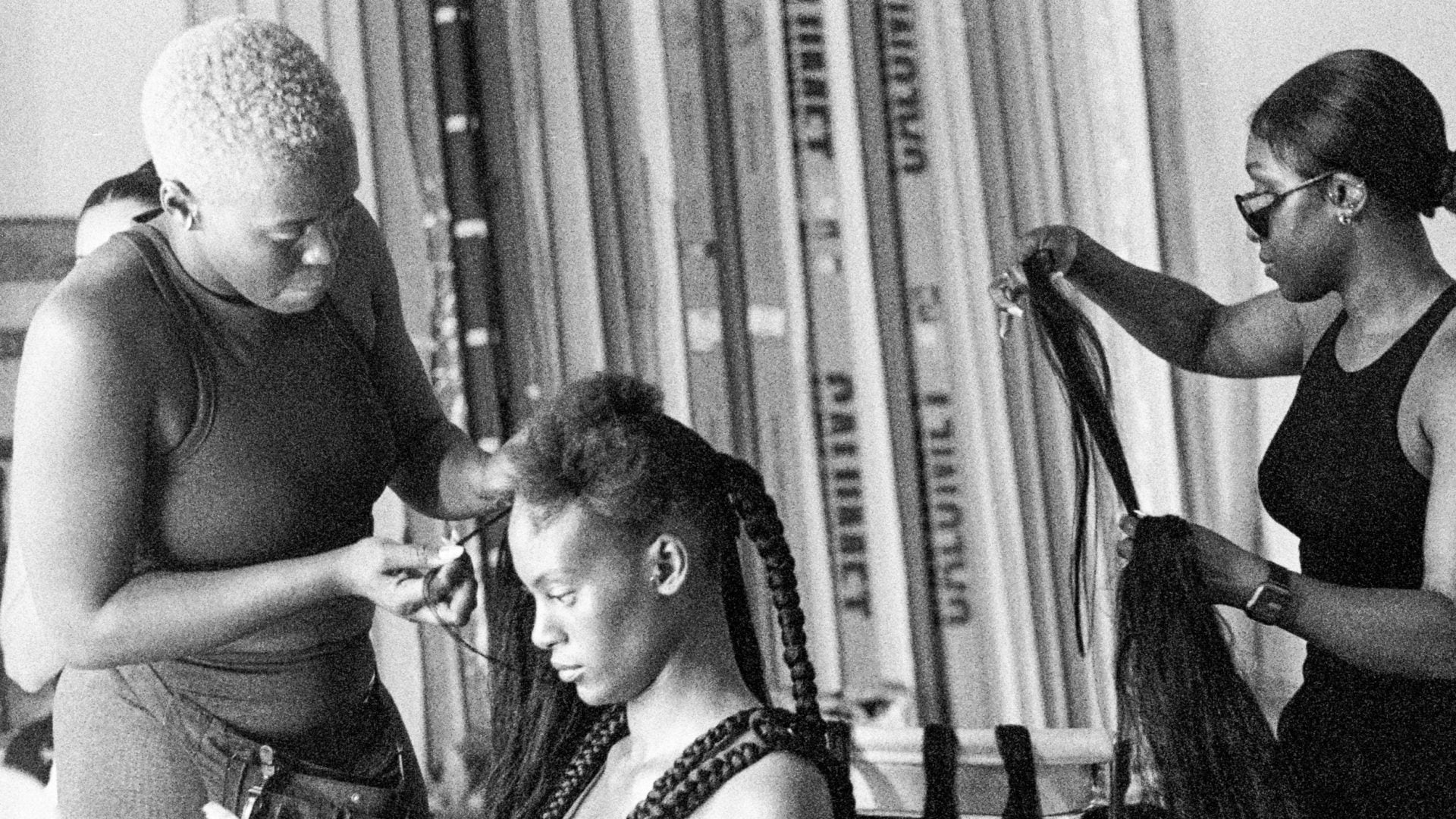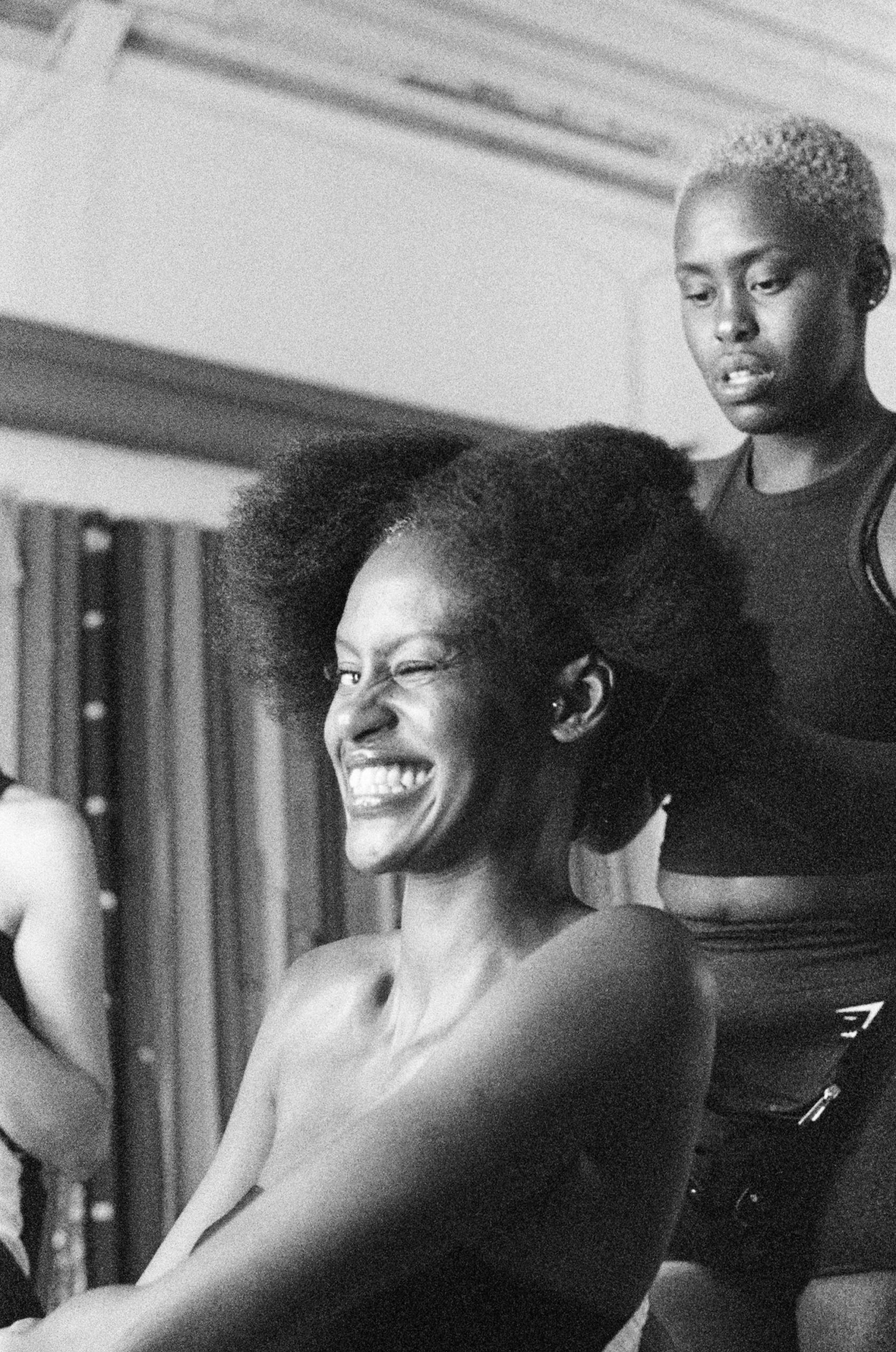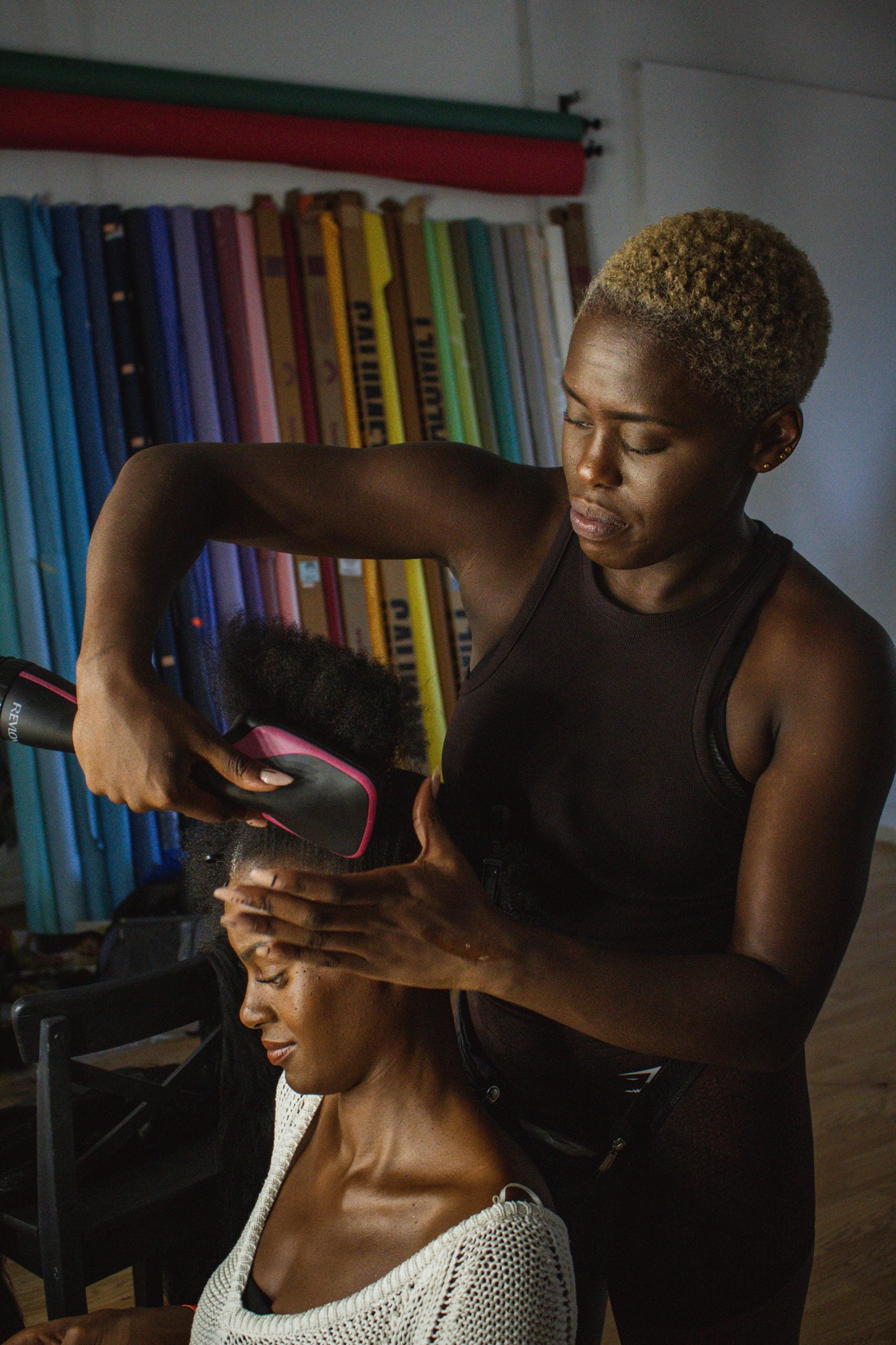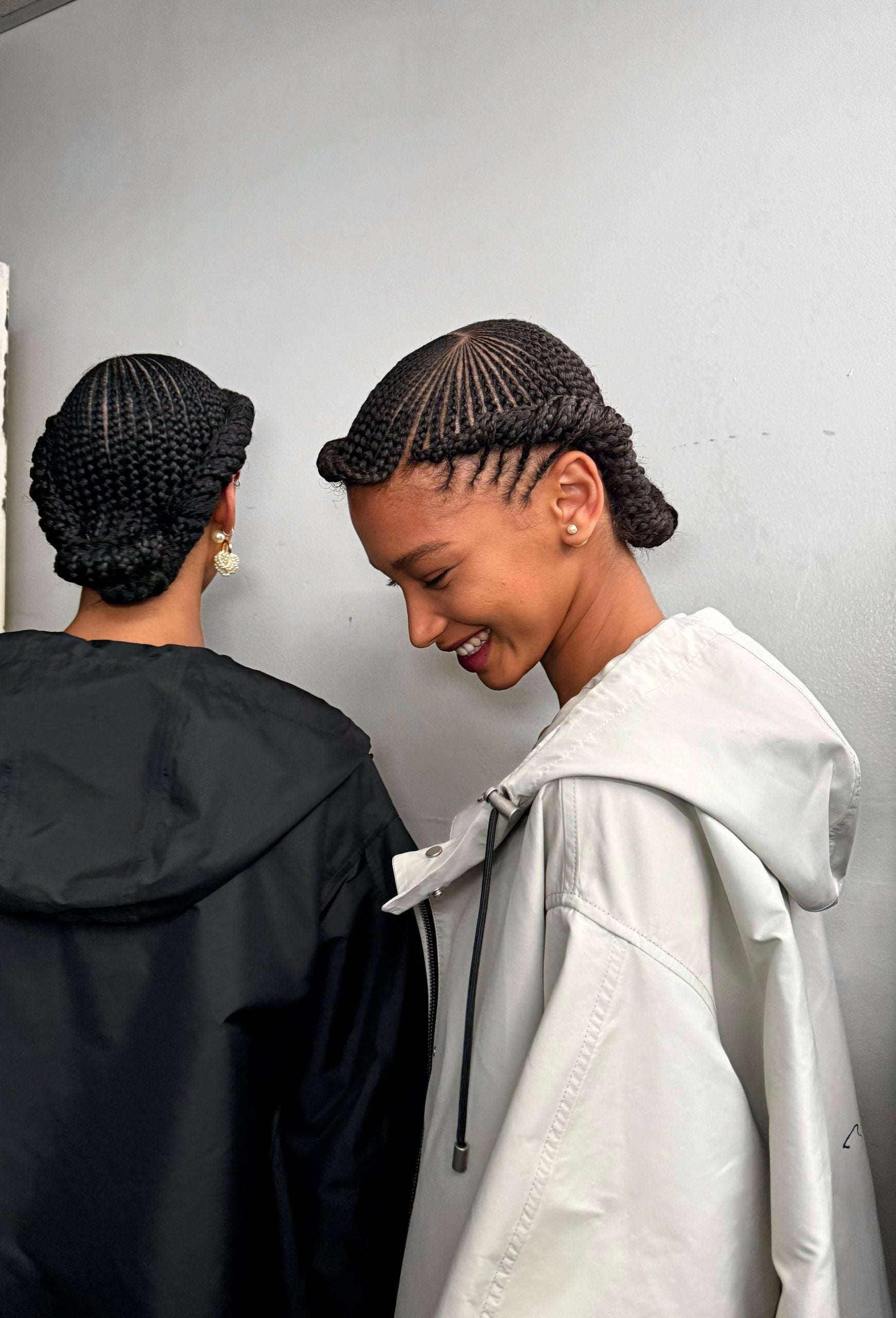
You’ve probably seen videos or read posts on social media from Black models sharing stories of what it is like to sit in the chairs of stylists who are not trained or skilled at working with their hair. There are endless tears, bouts of frustration and, not to mention, the literal damage it causes to models’ tresses.
From thinning edges and split ends to burned scalps and dry locks, the lack of intentional care to get Black models ready before hitting the runway perpetuates institutional racism. Thankfully, Aminata Kamara was a viewer who decided, after swiping on Instagram, to stop this from happening, one head at a time.
Kamara was used to being the only Black girl growing up in a predominantly white area of London. “You are the only one. You’re just othered and your differences are highlighted in every shape and form,” she tells ESSENCE. “You don’t feel confident in your skin color, hair… all those things that make you who you are, just didn’t make you feel good enough.”

Hairstyling was always a creative outlet for Kamara. She went from doing her own hair and hooking up her friends to using her natural talent to pay for college. But, after graduation, she was forced to quit due to “a lot of back pain.” Kamara explains, “braiding, wigs, weaves. It was just too intense. I was always on my feet.”
She made a living doing odd-end jobs, including working in admin and with young people, before taking some time off after giving birth to her daughter. The self-proclaimed opportunist later applied for a presenter job at the BBC. With no background in TV or radio, she auditioned for the role and secured the gig. “I felt like when I started presenting, my passion for people and storytelling really came to life. And when you’re doing someone’s hair, as much as it’s about hair, you’re talking and sharing stories,” says Kamara.
Needing to make extra money, Kamara took a huge risk by pitching herself to agencies and producers ahead of Fashion Week in 2023. She booked a ticket and secured hair assistant jobs backstage at Conner Ives, Simone Rocha, and Christopher Kane, just to name a few. In her first year, she worked in London, Milan, and Paris for some of the biggest fashion houses alongside Black legendary hair icons Cyndia Harvey and Jawara.

She fondly recalls the experience and says, “I just got thrown into the deep end. I don’t think I had the right equipment. But what I realized is that there were actually a lot of Black hairstylists backstage. I genuinely thought I was going to be the only one and I was going to make a huge impact. I was going to change the game, and actually I learned so much.”
Her most-viral work to date is the cornrow hairstyles that she collaborated on for the Dior Couture Fall/Winter 2024 Show. The Instagram Reel highlighting the look has 3.4 million views and counting. Tapped by lead stylist Guido Palau, Kamara and a team of expert stylists perfected a center-parted updo that was woven into a low looped braid at the nape of the neck. While a 10-second video clip can make it look seamless, the hair pro reveals that she undergoes “training days” to learn the look and start executing it days before the actual show.
“We do a lot of braiding. Really small, fine braiding. So it’s a lot of work that goes into the angles of the parting. The sizing of the braids. How close the braids sit together. Where the braids sit and frame the model’s face. How we create the finishing shape at the end,” she says. “The level of detail that comes across as simple, there is a lot of work that goes into it.”

Reading comments like, “It’s evident when a Black woman is involved” and “The prettiest runway hairstyles I’ve ever seen” are greatly satisfying. Still nothing compares to the reactions Kamara gets from the Black models.
She explains, “one of my faves [Elodie Guipaud] always comes up to me and says, “Aminata! I’m with you!” I remember we did a show in Sardonia for Dolce & Gabbana and I had another model in my chair. She said, “Aminata! Why do you always do this to me? You know I’m your girl. Why?”
Fostering an environment where models, especially Black models, can sit in a hairstylist’s chair and feel safe and seen is what makes Kamara a game-changer in our book. The hours are long, the labor is strenuous, but the “beautiful moment” at the end is all worth it, she says.
“We as hairstylists need to be very aware that as much as you are there to execute a look, just remember that it is a human being in your chair who deserves the utmost love and care.”
This interview has been edited for length and clarity.